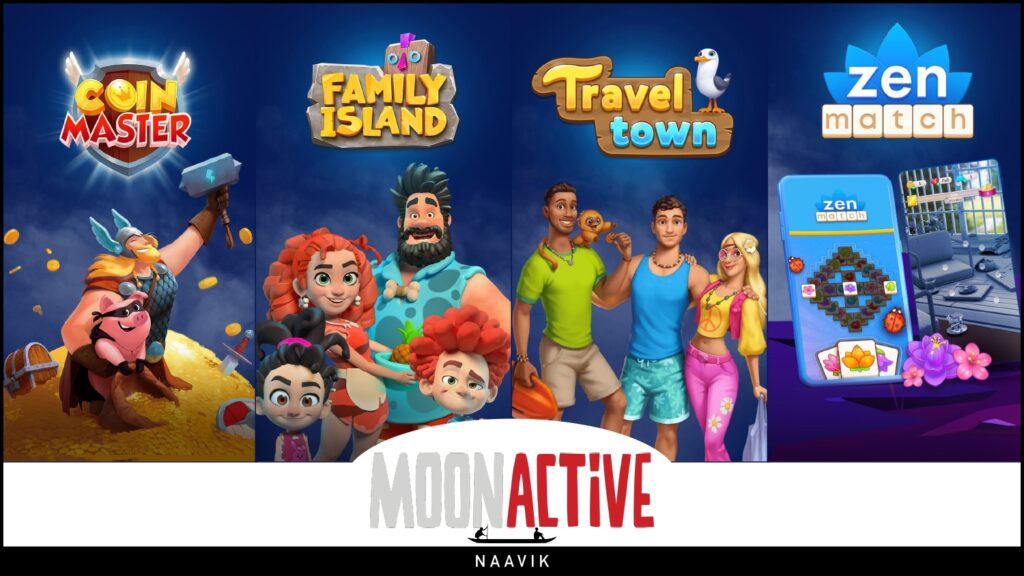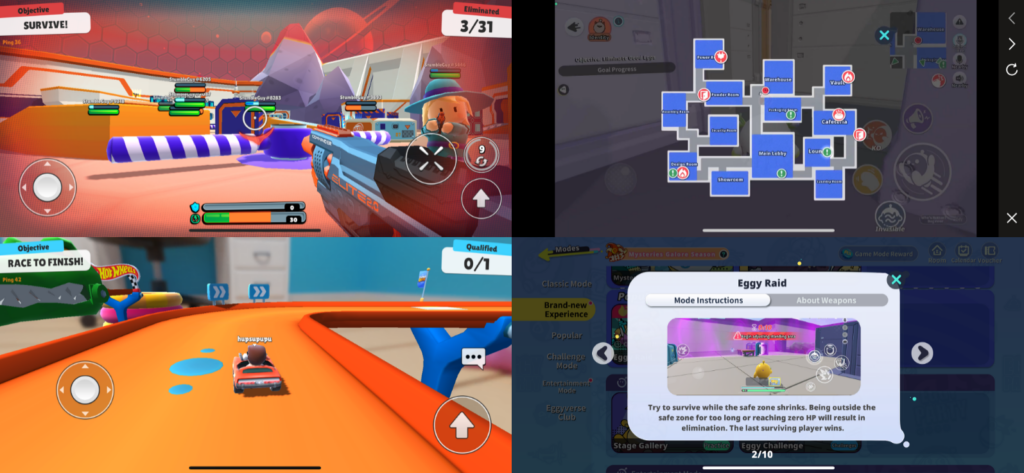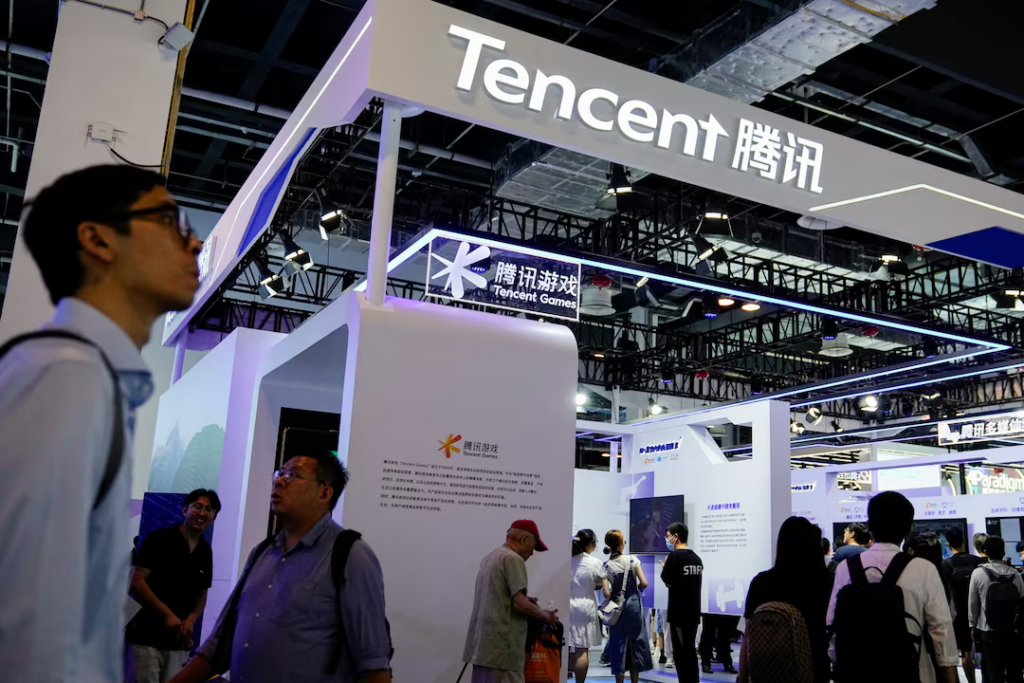Welcome to Master the Meta, the #1 newsletter about the business of video games.
Hi everyone,
We officially entered the peak of earnings season, so there are many updates to work through. We’ll start with four in this issue (among other topics), and I’ll hit on anything else that’s interesting in the next couple weeks. Unsurprisingly, all gaming companies I’ve looked at are crushing it. They attracted more players, boasted solid engagement, and that engagement was successfully monetized. One common risk for all these companies looking forward isn’t just mitigating the inevitable drop in overall engagement but ensuring that the brand new gamers — or at least new gamers to various franchises — stick around. If they don’t, then I suspect we’ll see numerous “victim of their own success” stories over the next year or so. That said, however results fluctuate over the next few months and quarters, accelerating trends mean there’s incredible long-term opportunity left for the innovators to capture.
Without further ado, here’s your weekly roundup and analysis of what’s happening in the video game industry:
🎤 In The Media
Gaming Stocks and the Rise of UGC (Market Foolery) — “We discuss gaming’s rise during the pandemic, the ripple effect of major league sports being delayed, and the relative valuations of Activision Blizzard, Electronic Arts, and Take-Two Interactive. Plus Aaron shares the game release he’s looking forward to and the trend investors should be watching.” Link
📰 News
Take-Two Interactive crushed expectations. It’s hard to ask for a better start to Take-Two’s new fiscal year. Net bookings skyrocketed 136% (far exceeding expectations), digital represented 92% of total net bookings (mostly backlog), recurrent consumer spending grew 127% and represented 65% of net bookings, and management raised guidance. This all occurred for a variety of reasons:
-
NBA 2K20 absolutely crushed it. DAUs rose 82%, MyCAREER users rose 78%, and MyTeam users jumped 108%. In-game spending spiked as a result, and now NBA 2K20 has sold 14 million units, 18% more than last year’s game.
-
GTA V has now sold 135 million units, which is utterly insane. Also, Q1 was Rockstar’s second best quarter ever for acquiring GTA Online players, and management expects the game to establish new net bookings records this year.
-
Pretty much every other game (except Disintegration) outperformed, too. Red Dead Redemption 2 sold more units this quarter than this time last year, Borderlands 3 has now sold 69% more units than Borderlands 2, Private Division continues to scale up its partnerships, and Social Point (Monster Legends + Dragon City) grew 54% to record highs.
The underlying theme for both Take-Two and the industry as a whole is that players being stuck at home (plus no live sports) led to higher gaming consumption and accelerated ongoing trends. Of course, there’s more to it than that. Take-Two delivered content than highly resonated, fixed monetization issues that NBA 2K20 faced earlier in its lifecycle, and it’s setting a foundation for future growth. Its pipeline of games is twice as large as it was 5 years ago, and it will continue to grow. Naturally, not all new games are even close to being created equally (*cough* GTA *cough*), so despite incredible recent growth Take-Two’s business will remain somewhat lumpy. In fact, cash flows will probably drop for the second year in a row this fiscal year, but that’s not necessarily an issue if the long-term launch trajectory remains intact. Plus, as the pipeline grows and Take-Two creates (or acquires) new hits — not to mention the fact that higher recurring spend adds stability — it’s hard to find fault with management’s strategy.
Lastly, I’ll quickly mention that Take-Two is the first company to raise prices on next-gen games. NBA 2K21 will sell for $70 instead of $60, which is being justified by saying the cost of making games has risen. The counterpoint is that gamers are already spending more than ever since in-game purchases have dramatically picked up. Both sides aren’t wrong, but because it’s been over a decade since base prices have risen, I do think now (amid a console transition) is a fair time to consider raising prices. Most companies, including Take-Two, are hesitant to formally say how other games will be priced, but everyone is certainly paying close attention and likely wants to raise prices if it works. It’s only a matter of time. Keep in mind, even though there remain big questions, higher prices also make subscriptions (like Xbox Game Pass Ultimate for $15/month) look like even better deals. Link
Activision Blizzard breaks Q2 records. Similar to Take-Two, Activision delivered remarkable quarterly performance. The company’s player base rose 30% and time spent in their games rose 70%, which translated to a 70% spike in net bookings. Again, this level of growth should not be extrapolated — behaviors are already likely normalizing — but it is worth celebrating and understanding why this was possible:
-
The Call of Duty ecosystem stole the show and is stronger than ever. Warzone has now brought in 75+ million players, many of which upsold to Modern Warfare. Due to more players and higher engagement, in-game net bookings were 5x higher than last year’s quarter. This outperformance drove 56% operating margins, which is absurdly great. Also, even though there’s plenty to nitpick about CoD: Mobile, net bookings growth is showing improvements. Obviously, the CoD franchise remains on a never-ending content treadmill — and it’s too early to say how next year’s unannounced edition will perform — but the combo of 1) FTP console/PC version (Warzone), 2) premium version, and 3) mobile creates a strong and resilient ecosystem that other franchises (within and outside of Activision) likely hope to replicate.
-
Despite cultural tensions, Blizzard’s franchises — World of Warcraft above all — also experienced strong growth in engagement. The team is reinvesting in more content, which should keep engagement strong going forward. I don’t have special insight into the claims that Blizzard employees are severely underpaid, but it’s obvious that the company needs to reprioritize improving its culture.
-
King experienced decent revenue growth, strong MAU growth, Candy Crush was once again the #1 grossing app in US app stores, and the segment’s operating income was the highest since being acquired. Candy Crush’s resilience is remarkable. Of course, King hasn’t had great success spinning up new franchises, but it will be interesting to see how Crash Bandicoot: On the Run performs.
In general, Activision’s strategy continues to create meaningful value. It’s also worth noting that management just simplified the company’s strategic pillars: 1) Expand audience reach, 2) Deepen engagement, and 3) Increase player investment. On one hand, duh; these are obvious. But on the other hand, these strategic pillars refocus on what matters most: getting more people to spend more time and money in Activision’s games. Everything else — movies, esports, etc. — is secondary. I’m most interested in the first pillar — “expand audience reach” — because that likely means increased focus on mobile and FTP, and that’s almost definitely where there’s the most upside. Of course, it all depends on execution (for example, there are split opinions on how well Diablo Immortals (mobile) could perform), and even though there are clear areas of improvement, it’s hard to argue that Activision isn’t a rock solid business right now. Link
Zynga also produced a record-breaking quarter. At a high level, Q2 bookings grew 38% year-over-year to $518 million (a new record), and operating cash flow leaped 47% to $145 million (the highest since 2011). Things are clearly going well! That said, there are also a lot of accounting and timing shenanigans at play, so the rearview financial mirror doesn’t give the greatest view of Zynga’s current state and future plans.
Most importantly, these numbers exclude Peak Games, which was recently acquired and adds Toy Blast and Toon Blast to Zynga’s “forever franchise” portfolio. That will provide a major shot of adrenaline to future results, and the cash those games produce will certainly be reinvested both into internal development and additional acquisitions. On the internal development front, there’s no major news and soft launches of Farmville 3, Puzzle Combat, and Harry Potter: Puzzles & Spells remain in progress.
On the acquisition front, Zynga made a surprising move (at least to me) of acquiring Rollic, an Istanbul-based developer and publisher of hypercasual games (i.e. games that are quick to make, easy to play, and usually boast aggressive user acquisition and monetization tactics). Zynga is buying 80% for $168 million upfront and will buy the rest over the next three years based on hitting performance goals. I thought Zynga was fully focused on forever franchises, so a widening of scope and inclusion of hypercasual initially makes me scratch my head. However, at a time when there are lingering uncertainties about mobile advertising (death of the IDFA, first and foremost), it makes sense why Zynga would target other means of acquiring users. Cross promotions via hypercasual games is one such alternative.
To be clear, I suspect that there’s higher than average risk in this deal working out. I don’t have a strong take on the future of Rollic’s games, and I’m not entirely sold that cross-promoting Rollic’s audience will really provide a meaningful and sustainable boost to other Zynga games. However, if Rollic’s user acquisition skills permeate other parts of Zynga’s organization then it could produce beneficial ripple effects. It strikes me like a deal for UA talent as much as anything. And if it doesn’t work out, it’s small enough where it won’t break the business.
All in all, Zynga remains on a pretty great trajectory, and it appears to have no shortage of reinvestment opportunities. The simple fact that so many businesses are interested in joining Zynga is an underrated competitive advantage. I do hope that leadership remains focused on forever franchises, but as the acquisition of Rollic indicates, management is willing to mix things up if they spot unique opportunities. I like that mentality, but it also raises the bar on the quality of decision-making and the skill of executing and integrating different kinds of businesses. Link
Nintendo also delivered a spectacular first quarter. Riding the stay at home wave, Switch sales (including the Switch Lite) rose 166.6% year-over-year and software sales rose 123%. Just as impressively, digital sales as a percentage of total sales grew from 38.3% last year to 55.6%. That’s still low compared to other companies, but it contributed to a 10% jump in gross profit margin, which trickled down into much higher net profits. Animal Crossing: New Horizons sold another 10 million copies, Ring Fit Adventure sales reaccelerated, and even the mobile / IP-related category grew 33% over last year.
Will this momentum continue? No way. Expect contraction. Even though the Switch will continue to sell decently well (especially when a Pro version comes out; although, it’ll look worse stacked up against next-gen consoles), my hunch is that some future purchases got pulled forward. Plus, the short/medium-term backlog of new first-party content doesn’t strike me as a major catalyst.
Either way, accelerating digital efforts is the strategy that would create the most value. That includes 1) encouraging more digital purchases (whether game downloads, DLCs, etc.), 2) unveiling a subscription service (probably not soon), and 3) striking mobile co-development deals (not super optimistic). The company also has a ton of cash but likely won’t do anything interesting with it. It is worth noting that Nintendo is much more licensing friendly than in the past, so that may unlock new growth avenues, but the company is moving slowly when it comes to the catalysts that matter most. The company is still well positioned; it’s just a matter of whether they can execute on where the future is heading. Link
Apple blocks xCloud. Next month xCloud will launch as a part of Xbox Game Pass Ultimate. The catch? It’s coming exclusively to Android devices, meaning Apple is blocking the service until Microsoft agrees to its terms. Apple says xCloud is blocked because the service’s current form means Apple can’t review every game on the platform (shh, don’t tell Apple about Roblox), but let’s be very clear. This has very little to do with unacceptable security measures (or anything specific to do with gaming) and very much to do with “unacceptable business models” (section 3.2.2.i of Apple’s Review Guidelines, s/o Stratechery ($)).
This is the epitome of monopolistic abuse. Apple dictates the rules which are designed to maximize its own revenue share, alters the rules whenever and however it wants, makes exceptions only when “forced” (WeChat), and there’s literally no other way companies can serve iOS users. Frankly, it’s good that governments are assessing antitrust issues, but — as we saw in the US congressional hearing last week — it’s hard to trust (often ignorant) representatives to ask the right questions and make the right decisions. Unless Apple and Microsoft strike a special deal or new antitrust laws force Apple to change its policies, I have a hard time seeing xCloud (or similar services) properly serve iOS users. In some ways this is hypocritical — Xbox is its own closed ecosystem — but what makes the iPhone different is that it’s a general purpose machine with nearly 1 billion users. Different rules must apply.
Android is a pseudo-open platform in a lot of ways, but at least there are ways to bypass Google Play. Xbox is partnering with Samsung, for example, to release a special Xbox Game Pass app in Samsung’s app store. You can bet that doing so means Microsoft is paying a fraction of the 30% take rate. Creating an environment where App Stores (or at least their payment methods) are forced to compete will create a healthier ecosystem for everyone. Link
Tencent faces more geopolitical headwinds. In late June, India banned multiple Chinese apps — TikTok, most notably — and it appears to be the first crippling blow (of many) for Chinese app developers. India is considering banning additional apps, including PUBG Mobile, and now the US is beginning to take a firmer stance. After making it known that TikTok must be banned or sold, President Trump signed an executive order that will prohibit WeChat from operating in the US. Like in India this doesn’t yet affect major Chinese games, but it looks to be increasingly a possibility.
I won’t speculate on what exactly will unfold, but many Chinese companies’ hopes of scaling international audiences may permanently be stifled on the basis of national security. Frankly, that’s a reasonable outcome given China’s treatment of foreign apps within its own borders, but it does limit the upside for companies like Tencent and NetEase. It also means there’s a small chance that Tencent will need to divest holdings like Riot Games and Supercell if tensions escalate further. Tencent in particular is still incredibly well positioned in China, but geopolitical headwinds may change the calculus and strategy of expansion. Ever since the Huawei ban escalated, it’s felt like the potential beginning of Cold War 2.0, but instead of geopolitics playing out purely through nation states, it’s also playing out through corporate shenanigans. Bizarrely, that means it might partially play out through games as well. Link
Quick hits:
-
Rally launches Creator Coin cryptocurrency for influencers. Link
-
CryptoKitties creator Dapper Labs raises $12 million for consumer-focused Flow blockchain. Link
-
Fall Guys reaches 1.5m players in 24 hours. Link
🖥 Content Worth Consuming
Matt Ball - The Future of Media: Movies, the Metaverse, and More. “Our conversation is all about the past and future of media. We discuss movies, music, television, video games, and the metaverse. When I re-listened to this episode I couldn’t believe how much information was in Matthew's head and how easily he covered so many topics in depth. Please enjoy this great conversation.” Link
Making Of: Glu SVP Mike Olsen on tackling the RPG genre with Disney Sorcerer's Arena. “No matter the size of the game or how long it ultimately takes to make, each new title involves a lot of hard work, tough decisions, and a little bit of luck before it even gets out the door and onto devices. And in the current mobile games market, that's only the first step to making the title succeed… This week we spoke with Glu Mobile senior vice president and general manager Mike Olsen regarding the development of Disney Sorcerer's Arena.” Link
Pandemic, Recession and Video Games - A European analysis:
See you next week!









